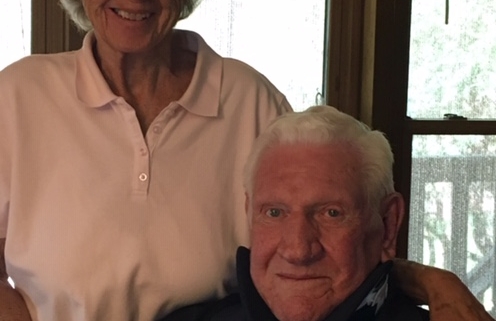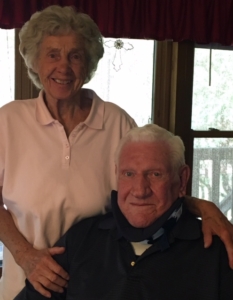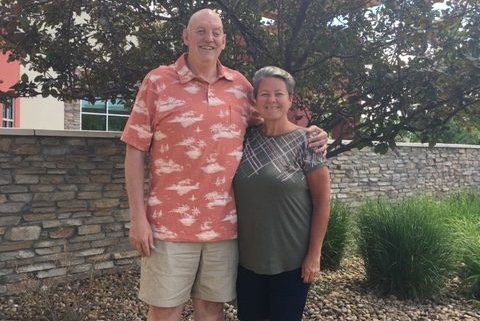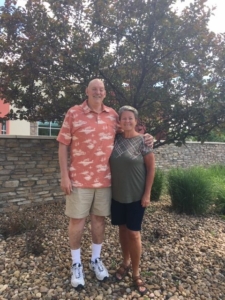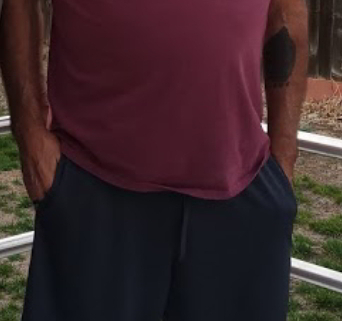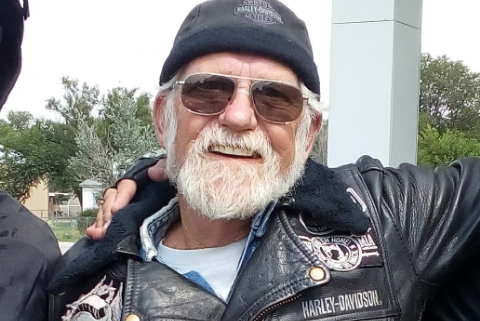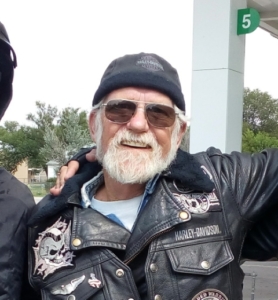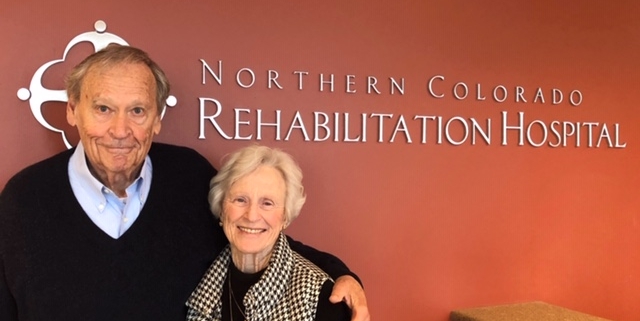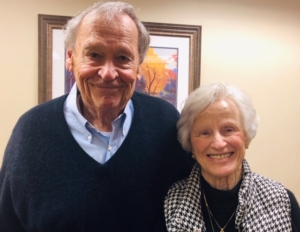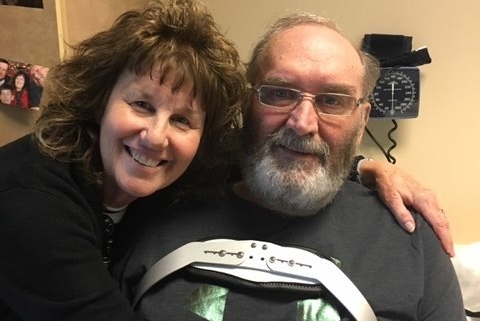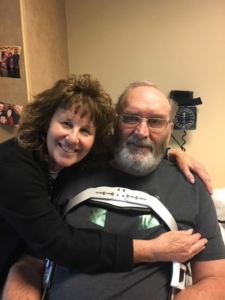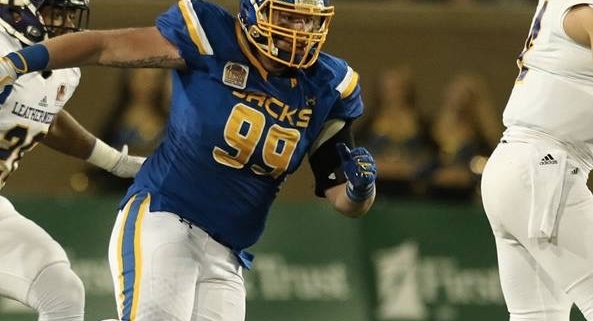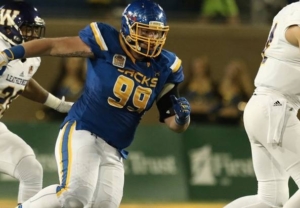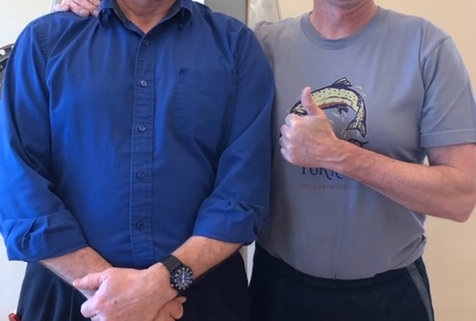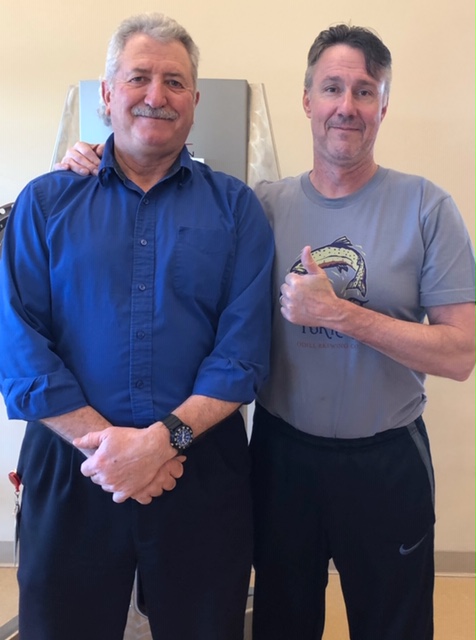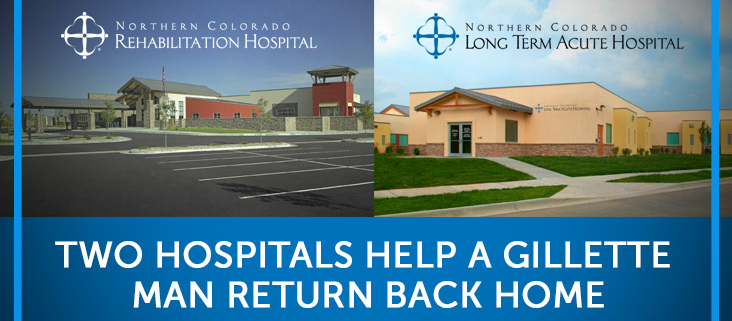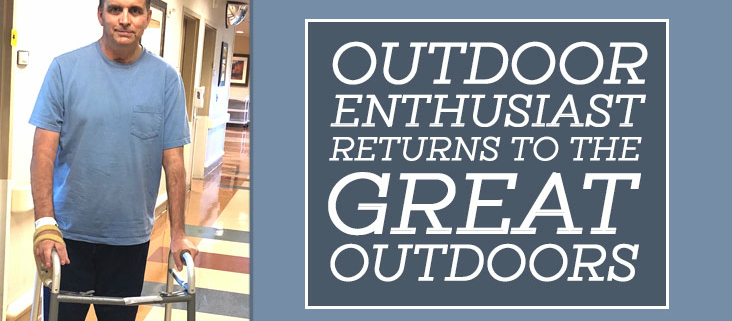Back in 2013, there was a Big Thompson River flood in Drake, CO. That is where Leroy Rady, 87, and his spouse, Marge, have lived for the past 20 years. Since the flood, Leroy has been rebuilding his home and fixing up the yard. He and Marge are very active and enjoy spending time with their three daughters and two grandchildren. He and Marge owned a telephone business and retired in 1997.
One June day, Leroy fell in his kitchen and hit his face, injuring his spine in the process. His diagnosis was an incomplete central cord syndrome secondary to a spinal cord injury at C6 with severe spinal stenosis. Unable to feel his arms and experiencing extreme pain, Leroy underwent surgical intervention.
Inpatient rehabilitation would be important for Leroy’s recovery. He chose Northern Colorado Rehabilitation Hospital due to his daughter living close to the facility.
Leroy couldn’t be happier with the decision. He had praise for all the staff and the impact they had on his recovery. “The therapists influenced my recovery the most and made me work really hard,” he reflected. “I wanted to get home and they wanted to get me home!”
“The nurses were great,” he continued. “The CEO and director of nursing greeted me when I arrived and were very welcoming. I loved how the CEO would help in the kitchen and deliver popcorn every Friday to patients and staff. At other facilities, you don’t see this.”
Having made great progress, Leroy was ready to discharge home. That day would be an emotional one for Leroy. “The best part of my experience at NCRH was the standing ovation at the end of my stay,” he said with tears in his eyes. “Everyone I worked with was wishing me well on my journey ahead. I am so blessed to be doing as great as I am and to have worked with such a wonderful staff.”
Leroy also credits his family for their support, especially Marge.
Back home, Leroy is excited to get back to working on the house and the yard. He still has to wear a neck brace for a few more weeks but he is walking around the house and doing great!
